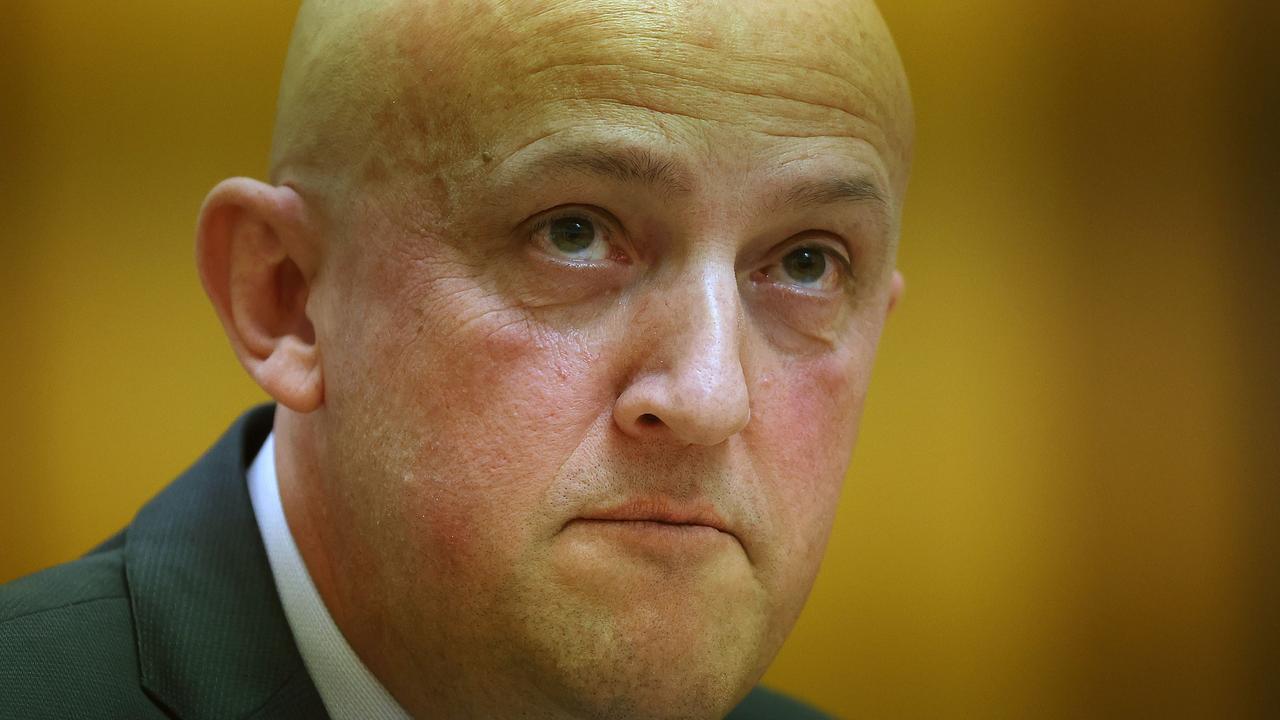[ad_1] The country’s top spy has warned of the rapidly increasing danger of espionage and foreign interference, revealing a former politician “sold
[ad_1]
The country’s top spy has warned of the rapidly increasing danger of espionage and foreign interference, revealing a former politician “sold out their country” to spies for a foreign actor that uses professional networking sites to target Australians with privileged information.
In a rare insight into the workings of the country’s spy agency, Mike Burgess – the director-general of the Australian Security Intelligence Organisation – delivered his annual threat assessment on Wednesday night.
He warned there was at least one nation state laying the groundwork to potentially sabotage key Australian infrastructure in the future.
He said while ASIO still believed a terrorist attack was “possible”, the risk of espionage and foreign interference was more like “certain”.
“The threat is real. The threat is now. And the threat is deeper and broader than you might think,” he said.
He said the “A-team” – a spy network operating within a “particular foreign intelligence service” – had come to be one of the most significant threats the agency was fighting against, speaking about them publicly because “we want the A-team to know its cover is blown”.
Mr Burgess said the A-team trawls professional networking sites looking for Australians with access to high-level security, defence and risk information.
Mr Burgess said the team used “false, anglicised personas”, posing as consultants, headhunters, officials, academics and researchers from fictional companies to approach the targets.
He said they had tried to recruit students, academics, business people, police and public servants across all levels of government.
Even elected officials have fallen for the A-team, with Mr Burgess speaking of one former politician who had been “successfully cultivated and recruited” by the A-team.
“This politician sold out their country, party and former colleagues to advance the interests of the foreign regime,” Mr Burgess said.
“At one point, the former politician even proposed bringing a prime minister’s family member into the spies’ orbit.
“Fortunately, that plot did not go ahead, but other schemes did.”
Mr Burgess did not make clear who the former politician was, or whether they had unwittingly engaged with the A-team, or done so deliberately.
In one such other scheme, leading Australian political figures and academics went overseas for an all-expenses paid conference attended by a host of A-team spies purporting to be bureaucrats, who built relationships with the Australians and “aggressively targeted” them.
“A few weeks after the conference wrapped up, one of the academics started giving the A-team information about Australia’s national security and defence priorities,” Mr Burgess said.
“Another Australian, an aspiring politician, provided insights into the factional dynamics of his party, analysis of a recent election and the names of up-and- comers – presumably so the A-team could target them too.
“ASIO disrupted this scheme and confronted the Australians involved. While some were unwitting, others knew they were working for a foreign intelligence service.”
Mr Burgess said ASIO had helped extract the unaware ones, severed the links between the others and the foreign actors, and added: “several individuals should be grateful the espionage and foreign interference laws are not retrospective”.
Mr Burgess said ASIO confronted the A-team directly online last year.
“The spy was being spied on. The player was being played,” Mr Burgess said.
He said too many Australians were missing the warning signs or were making the A-team’s work “too easy”.
“On just one professional networking site, there are 14,000 Australians publicly boasting about having a security clearance or working in the intelligence community. Some even out themselves as intelligence officers – even while proving they’re not particularly good ones!” he said.
“I appreciate that people need to market themselves but please be smart and be discreet – don’t make yourself an easy target.”
Also during his speech, Mr Burgess made a chilling warning that he feared sabotage – the principal security concerns in the 1950s – could re-emerge, particularly in relation to critical infrastructure.
“There aren’t a lot of things that terrorists and spies have in common, but sabotage is one of them,” he said.
“ASIO is seeing both cohorts talking about sabotage, researching sabotage, sometimes conducting reconnaissance for sabotage – but, I stress, not planning to conduct sabotage at this time.”
He said ASIO was aware of one nation state conducting “multiple attempts to scan critical infrastructure” in Australia and elsewhere, targeting water, energy, and transport energy networks.
Describing the reconnaissance as “highly sophisticated” and a means of mapping out networks and testing digital locks, Mr Burgess said there was a chance the nation could conduct sabotage in the future.
Citing the impact the Optus network outage last year – unrelated to sabotage – had on Australia, Mr Burgess questioned what it would mean for the country if a foreign state “took down all the networks, or turned off the power during a heatwave?”
“I assure you, these are not hypotheticals,” he said.
“Foreign governments have crack cyber teams investigating these possibilities right now, although they are only likely to materialise during a conflict or near conflict.”
[ad_2]
Source link



COMMENTS